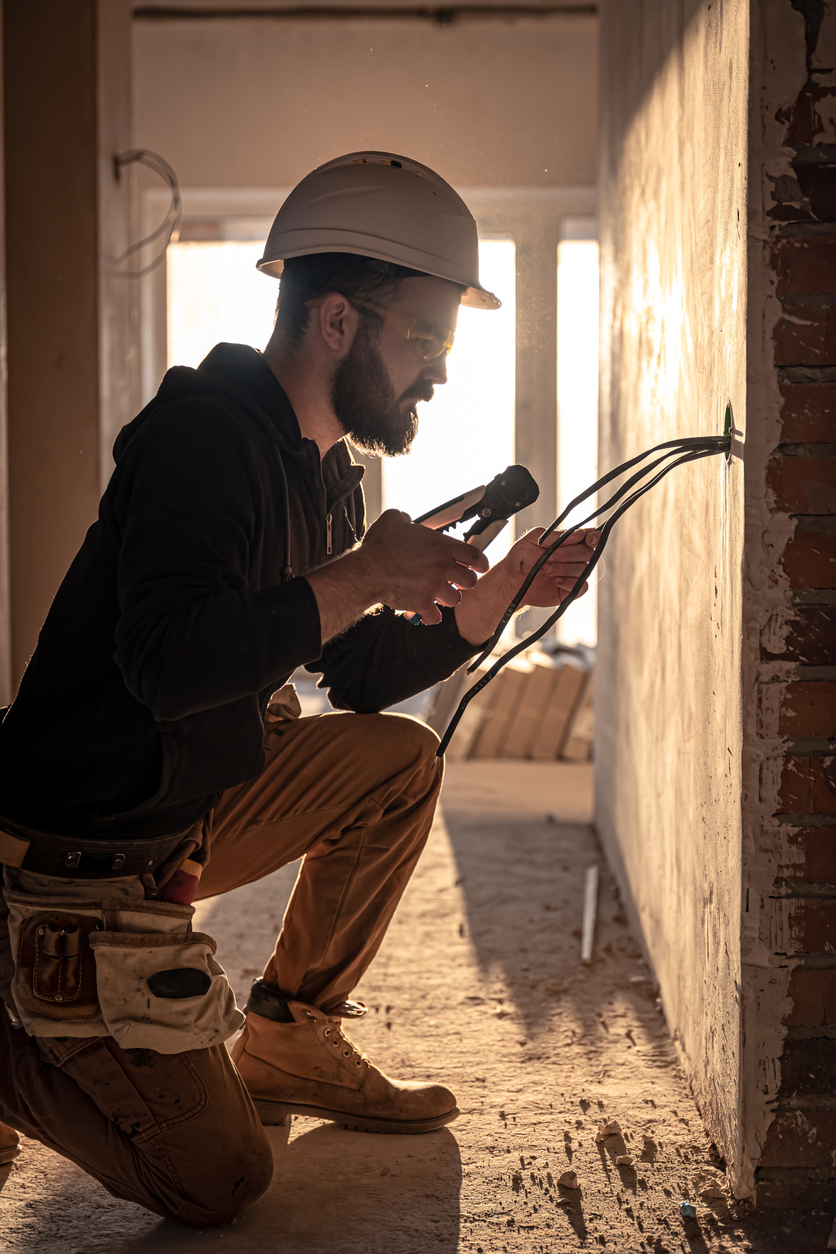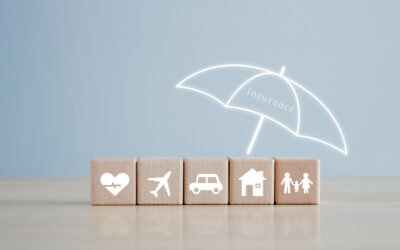Electrical Contractors
Electrical Contractors
Electrical contractors install, service, maintain, and repair electrical wiring, conduits and fixtures both inside and outside of residential and commercial buildings. They may specialize in high-voltage or low-voltage work. Inside contractors install electrical wiring used for powering machinery, equipment, and lighting systems. Outside contractors install overhead power lines and underground electrical cables. Most states require electrical contractors to be licensed. The contractor may provide 24-hour emergency service.

Property Exposures
Property exposures at the contractor’s premises are generally limited to an office and storage for supplies, tools and vehicles. Electrical wiring is not combustible,
Read More...
but the insulating sheathing produces a black oily smoke when burnt and can be difficult to extinguish once started. Proper storage with good aisle space is important for preventing fires. Copper cable and wiring can be targeted by thieves. Appropriate security controls should be taken including alarms, lighting, and physical barriers prohibiting access after-hours.
Inland Marine Exposures
Inland marine exposures include accounts receivable if the contractor offers credit to customers, contractors’ equipment and tools, goods in transit,
Read More...
installation floater, and valuable
papers and records for customers’ and suppliers’ information. There may be computers for tracking inventory, goods in transit, or installation exposures. Backup copies of all data should be stored off premises. Equipment consists mainly of hand tools and ladders unless there is line construction or machinery installation. Line construction may involve the use of cherry pickers and similar equipment for overhead lines, or trenchers and other digging equipment for laying underground cable. Contractors may lease, rent or borrow equipment, or may lease out,
rent or loan their owned equipment to others, which poses additional risk as the operator may
be unfamiliar with the operation of the borrowed item. Tools and materials awaiting installation that are left at job sites are exposed to loss by theft, vandalism, damage from wind and weather, and damage by employees of other contractors. Goods in transit can be damaged by collision or overturn. Copper cable and wiring have high resale value and can be a target for theft items during transit or while located at job sites.
Crime Exposure
Crime exposure is primarily from employee dishonesty, including theft of customers’ goods by the contractor’s employee. Background checks, including criminal history,
Read More...
should be performed on all employees providing services to customers or handling money. There must be a separation of duties between persons handling deposits and disbursements and reconciling
bank statements.
Premises Liability Exposures
Premises liability exposures at the contractor’s office are generally limited due to a lack of public access. Outdoor storage of
Read More...
materials may create vandalism and attractive nuisance hazards. Off-site exposures are extensive. The area of operation should be restricted by barriers and proper signage to protect the public from slips and falls over tools, power cords, air conditioning systems, and scrap. During installation, electrical voltage must be turned off at the job site to reduce the risk of electrical burns or electrocution to others entering the area and turned back on after work stops. Disruption of electrical service to other homes or businesses in the vicinity should be minimalized. Electrical work can be invasive and require work throughout a home or business, resulting in a high potential for property damage. If there is work at heights, falling tools or supplies may cause bodily injury or property damage if dropped from ladders and scaffolding. During construction, other contractors typically depend on electricity for lighting and power to perform their work. In existing structures, the contractor must take care to control the electrical flow as new lines are installed alongside existing ones.
Power fluctuations may damage sensitive equipment. Exterior electrical contractors must notify other utilities to prevent downtime to their customers and must prevent surges to their own customers. Contractors laying underground cables should verify the absence of other utility lines prior to digging to avoid cutting into gas, water or communications cables. Underground laying of cables involves trenching which requires physical barriers to prevent others from falling into open areas. The use of subcontractors as well as any contractual liability exposures should be examined.
Personal Injury Exposures
Personal injury exposures include assault and battery and invasion of privacy. Background checks should be conducted for any employee who will have regular contact
Read More...
with customers.
Completed Operations Liability Exposures
Completed operations liability exposures can be severe due to improper wiring or grounding. Both power failures and power surges
Read More...
resulting from the contractor’s negligence may result in significant bodily injury or property damage. Work for medical facilities, prisons, large manufacturers, and alarm system installation can present the potential for catastrophic
loss. Quality control, including work order documentation, and employee training, background, and experience is important. Warranties, guarantees, and maintenance agreements, in which the contractor promises to keep a system in operation, should be reviewed.
Environmental Liability Exposures
Environmental liability exposures can be high if the electrical contractor is responsible for the disposal of old capacitors and
Read More...
other heavy-duty electrical equipment that contains PCB’s.
Spillage and leaking of pollutants into the air, ground, or water can result in high cleanup costs and fines. Disposal procedures must adhere to all EPA and other regulatory standards. Proper written procedures and documentation of both the transportation and disposal process are important.
Automobile Exposure
Automobile exposure is generally limited to transporting workers, equipment and electrical cables and supplies to and from job sites. All drivers must have valid licenses
Read More...
for the vehicles being driven. MVRs must be run on a regular basis. Random drug and alcohol testing should be conducted.
Vehicles must be well maintained with records kept in a central location. Vehicles may have special modifications or built-in equipment such as lifts and hoists. Large cables may be awkward and require special handling and tie-down procedures.
Workers Compensation Exposures
Workers compensation exposures vary based on the size and nature of the job. Electrical burns are common; electrocution can occur
Read More...
from the use of high-voltage lines. Injuries can occur from working with hand tools, slipping or falling, back injuries such as hernias, strains and sprains from lifting, pulling cable, or working from awkward positions, foreign objects in the eye, hearing impairment from noise, temperature extremes, auto accidents during transportation to and from job sites, and the carelessness of employees of other contractors.
Minor injuries may be frequent even when the severity exposure is controlled. Failure to enforce basic safety procedures, such as power shutoff prior to commencing certain operations, may indicate a morale hazard. When work is done on ladders and scaffolds, employees can be injured from falling, being struck by falling objects, or adverse weather conditions. Laying underground cables may be near power and gas lines. Trench collapse can result in workers being suffocated or buried underground.
Coverages to consider but not limited to
Coverages to consider but not limited to: Business Personal Property, Accounts Receivable, Contractors’ Equipment and Tools,
Read More...
Goods in Transit, Installation Floater, Valuable Papers and Records, Employee Dishonesty, General Liability, Employee Benefits Liability, Umbrella/Excess Liability, Automobile Liability and Physical Damage, Hired and Nonownership Auto, Workers Compensation, Building, Business Income with Extra Expense, Equipment Breakdown, Flood, Leasehold Interest, Real Property Legal Liability, Contractor Professional Liability, Pollution Liability, Computers, Riggers Liability, Cyber Liability, Employment Practices Liability, Stop Gap Liability, Commercial Crime
Articles
An Important Guide to Deciphering Auto Insurance
The journey to understanding auto insurance often seems filled with complex terms and various types of coverage, each designed to protect different aspects of your driving life. For vehicle owners, grasping the nuances of auto insurance is critical—not merely to meet...
Cybersecurity and Data Protection in Today’s Insurance Landscape
As the digital age continues to evolve, the insurance industry stands at the forefront of two crucial battles: safeguarding against cyber threats and ensuring the utmost protection of client data. This dual commitment is not just about adhering to industry standards;...
Unveiling the Strength of Umbrella Insurance Policies
The world of insurance brims with options designed to safeguard individuals and businesses against the unforeseen. Among these, umbrella insurance policies stand out, offering a layer of protection that extends beyond the limits of standard policies. This additional...
Don't wait before it's too late by calling our insurance agency today for business insurance. We're honored to provide our brand of outstanding service to large and small businesses throughout Texas.
Address
2219 Sawdust Road, Suite 501
Spring, TX 77380
Phone
(281) 751-6580



